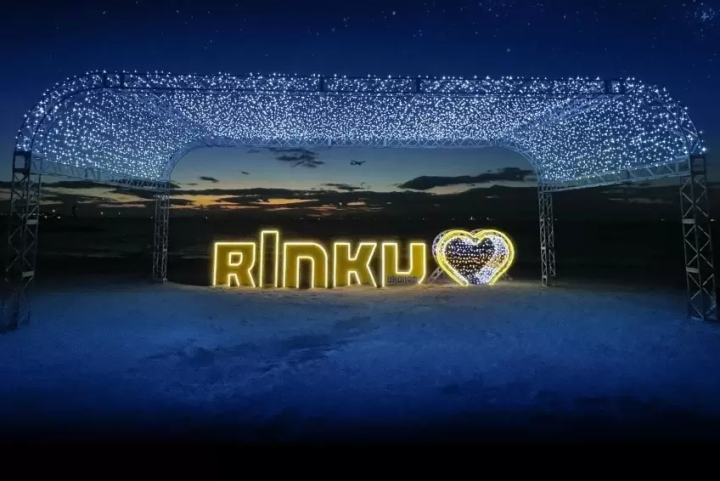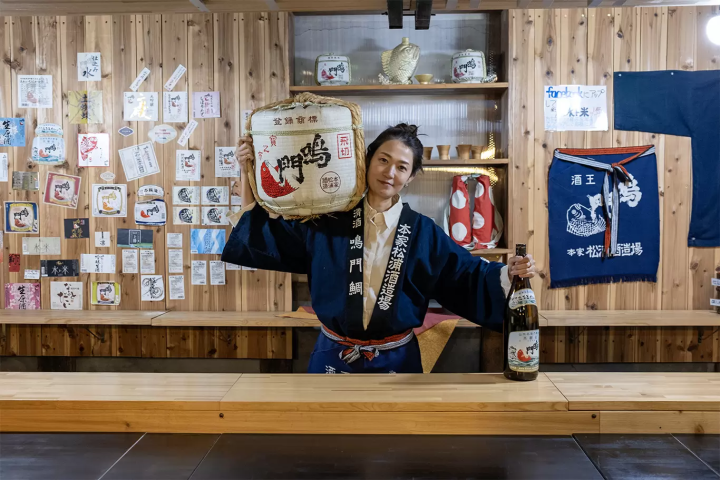10 Japanese Phrases to Use at Museums and Sightseeing Spots

This article introduces ten basic Japanese phrases which will make your sightseeing more enjoyable. Try to use them at museums, galleries and other sightseeing places!
Use Japanese, and Enjoy the Museums!
If you want to enjoy the sightseeing spots and museums, try to use Japanese and talk to the staff. Here are some basic phrases that’ll help you on your way.
Asking Directions
1. Kokuritsu hakubutsukan wa doko desu ka? / Where is the National Museum?
[kokurits hakubuts kan wa doko deska]
The phrase for asking directions is [A wa doko deska]. Substitute A with the place you want to go.
Example:
Kore wa doko desu ka? [kore wa doko deska] (Where is this?)
Use this phrase while pointing at a map.
Kono e wa doko desu ka? [kono e wa doko deska] (Where is this painting?)
Ukiyoe wa doko desuka? [ukiyoe wa doko deska] (Where is the ukiyoe?)
Otearai wa doko desu ka? [ote arai* wa doko deska] (Where is the lavatory?)
*’toire’ (toilet) is another word for lavatory.
Buying Tickets
2. Otona nimai onegai shimasu / Two tickets for adults, please.
[otona nimai onegai shimas]
The phrase to ask (or order) something is A [onegai shimasu].
When buying tickets, also mention your age bracket and the number of tickets.
1. Age Bracket
Otona [otona] (adult), Gakusei [gaksei] (student), Kodomo [kodomo] (children)
2. Numbers
Ichimai [ichimai] (one ticket), Nimai [nimai] (two tickets), Sanmai [sanmai] (three tickets), Yonmai [yonmai] (four tickets)
[sanmai] should be pronounced "san-mai," not [samai].
Example:
Otona nimai, onegai shimasu [otona nimai, onegai shimas]. (Two adult tickets, please.)
Otona nimai, kodomo nimai, onegai shimasu [otona nimai, kodomo nimai, onegai shimas] (Two adult tickets and two child tickets, please.)
3. Gakusei waribiki wa arimasu ka?/ Is there a student discount?
[gaksei waribiki wa arimaska]
If you have an international student card, it is worth asking.
Asking for Permission
4. Shashin ii desu ka? / Can I take photographs?
[shashin i:deska]
A, ii desu ka? / Is it okay to do A?
[A, i:deska]
This is a phrase for asking permission to do something.
If you want to ask about taking photographs, show your camera and say "Shashin ii desu ka? [shashin, i:deska?]?"
In case you want to take a photograph with yourself in it, hand over your camera and ask "Shashin ii desu ka? [shashin, i:deska?]?"
Other Examples
Furasshu ii desu ka? / Can I use flash photography?
[furasshu i:deska]
Many institutes prohibit flash photography. Be sure to check before using it.
In case of [furasshu], be sure to say fura-shu, and not [furas-shu].
5. Chotto ii desu ka?/Excuse me
[chotto i:deska]
This is a phrase to use when you want to catch someone's attention. It can be used in various situations, such as before asking something, or when standing behind someone.
Inside Museums
6. Chuugokugo no onsei gaido wa arimasu ka? / Do you have audio guidance in Chinese?
[chu:gokugo no onsei gaido wa arimaska]
Museums can be better appreciated with knowledge in your own language, and most large museums have audio guidance systems available in several languages.
A no onsei gaido wa arimasu ka? / Do you have voice guidance in A?
[A no onsei gaido wa arimaska]
Substitute A with your language.
Eigo [e:go] (English)
Kankokugo [kankokugo] (Korean)
Betonamugo [betonamugo] (Vietnamese)
Taigo [taigo] (Thai)
Indoneshiago [indoneshiago] (Indonesian)
Even if an audio guidance system is not available, museum shops may have guidebooks in multiple languages. Shops handling museum goods are called baiten [baiten].
They are also called myuujiamu shoppu [myu:jiamu shoppu], so use whichever is convenient.
When looking for guidebooks, use the following phrase:
A no gaido wa arimasu ka? / Do you have the guide for A?
[A no gaido wa arimaska]
7. Kore wa nan desu ka?/What is this?
[kore wa nan deska]
If you find something unfamiliar, use the phrase above.
If you want to know whose sculpture it is, use the following phrase:
Kore wa dare desu ka? / Who is this?
[kore wa dare deska]
8. Ogata Kourin no sakuhin wa doko desu ka? / Where are the works by Ogata Korin?
[ogata ko:rin no sakhin wa doko deska]
If you are looking for a specific artist, use the following phrase:
A no sakuhin wa doko desu ka?/Where is the work by A?
[A no sakhin wa doko deska]
To say [hi], shape your lips to make an "e" sound, and let out your breath through the roof of the mouth, like saying the word ‘he’ in English. For those who are familiar with German, it is the same as the "ch" sound in "ich."
The word sakuhin [sakhin] applies to all kinds of artwork, including paintings, woodblock prints and sculptures. In the case of Japanese artists, the family name comes first, and the given name second.
Asking about Business Hours
9. Nan ji made aitemasu ka? / When do you close? (When are you open until?)
[nanji made aite maska]
Use the phrase above when you find a shop you want to visit later.
If you plan to visit on another day, use the following phrase.
Nan ji kara aitemasu ka? / When do you open?
[nanji kara aite maska]
10. Yasumi wa itsu desu ka? / When is the museum closed?
[yasmi wa itsu deska]
Use the phrase above to ask for fixed closing days.
Review
1. Where is the National Museum?
[kokurits hakubutskan wa doko deska]
2. Two adult tickets, please.
[otona nimai onegai shimas]
3. Is there a student discount?
[gakse: waribiki wa arimaska]
4. Can I take photographs?
[shashin i:deska]
5. Excuse me.
[chotto i:deska]
6. Do you have voice guidance in Chinese?
[chu:gokugo no onsei gaido wa arimaska]
7. What is this?
[kore wa nandeska]
8. Where are the works by Ogata Korin?
[ogata ko:rin no sakhin wa doko deska]
9. When do you close?
[nanji made aite maska]
10. When is the museum closed?
[yasmi wa itsu deska]
How was the article? Asking questions should help when you are sightseeing. Try the ten phrases mentioned above, and have fun!
For those already studying, we recommend taking online conversation lessons with CafeTalk (1,000 yen coupon included).
A Japanese teacher, calligrapher, singer in my room!






































![[ Naruto City, Tokushima Prefecture ] Experience the world's largest whirlpools up close on a sightseeing boat at the Spring Whirlpool Festival!](https://resources.matcha-jp.com/resize/720x2000/2025/02/05-222727.webp)
![[Niigata] Skiing and snowboarding are just not enough! Fun snow spots for parents and children](https://resources.matcha-jp.com/resize/720x2000/2026/01/29-256901.webp)


![[Gunma, Nakanojo] Experience Japanese history in a wooden school building from the Meiji era](https://resources.matcha-jp.com/resize/720x2000/2025/12/25-254022.webp)